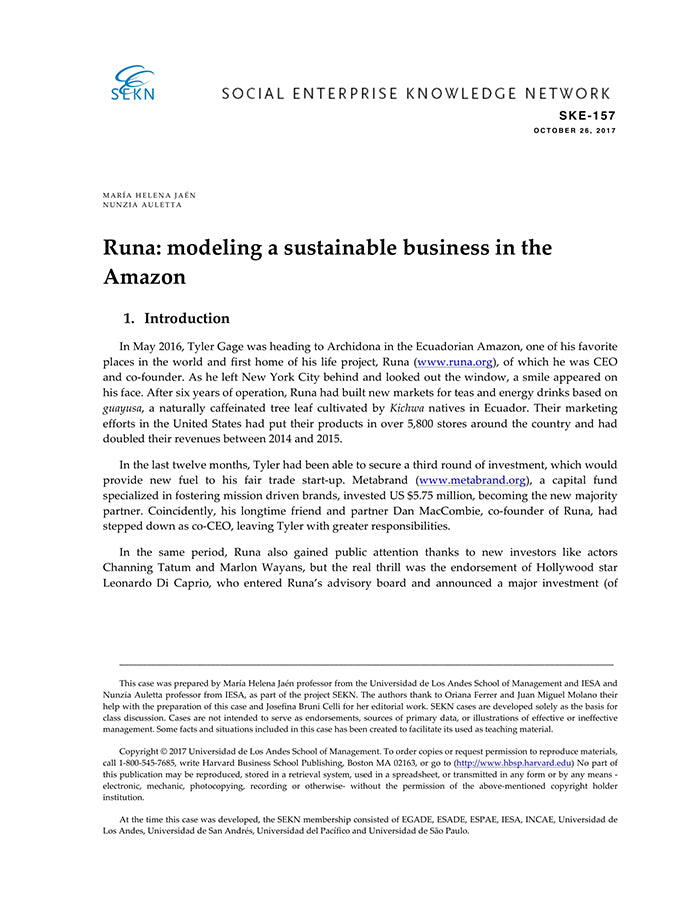Runa: Modeling a Sustainable Business in the Amazon
受取状況を読み込めませんでした
By May 2016, the Runa Group (RG) was a hybrid organization composed of for-profit and non-profit entities located in Ecuador and the United States. Its vision was to promote the sustainable development of the Amazon through the creation of new markets for products based on guayusa, a naturally caffeinated tree leaf cultivated by Kichwa natives in the Ecuadorian Amazon. Founded in 2009 by Tyler Gage and Dan MacCombie, Runa was the result of their experience living with local communities. After six years of operation, Runa had built new markets for teas and energy drinks based on guayusa. Their marketing efforts in the United States had put their products in over 5,800 stores and had doubled their revenues between 2014 and 2015. Tyler and Dan decided to shape their start-up on the principles of fair trade and sustainable business models, with the aim of improving the livelihoods of the Kichwa and contributing to the development and sustainability of the guayusa value chain. Their business had a commercial for-profit branch led by Runa LLC in the United States and Runatarpuna Exportadora S.A. in Ecuador. Fundaci n Runa in Ecuador and the Runa Foundation in the United States constituted Runa's nonprofit branch. The RG supported the development of local economic capacity by offering producers a 15% premium on all purchased guayusa. This premium was placed in a Fair Trade Social Premium Fund to be administered by the farmer associations. RG increased the incomes and favored the inclusion of small indigenous producers in the guayusa value chain. The foundations focused on research, improvement in the farmers' productive activities and community development, and on the promotion of fair public policies, while the for-profit companies focused on the production, marketing, and sales of the final products for the United States market. From the perspective of RG founders, 2017 would be critical to demonstrate that their business model could be sustainable, and that they could keep on growing as a business while benefiting the farmers and protecting the environment. This teaching case focuses on the challenges and dilemmas of modeling a sustainable business that is founded not only on the pursuit of the entrepreneurial venture's economic consolidation and growth, but also on a multiple stakeholders' view of value creation. Universidad de Los Andes' case collection.
【書誌情報】
ページ数:24ページ
サイズ:A4
商品番号:HBSP-SKE157
発行日:2017/10/26
登録日:2019/1/29


